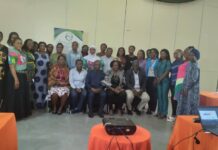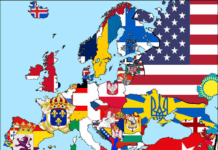UNODC: HIV and Health in Nigerian prisons and for people who use drugs.
By Onome Onojaefe
The “HIV and Health in Nigerian Prisons and for people who use drugs” project is primarily funded by UNAIDS with complementary support from the European Union and USAID, and is implemented by the United Nations Office on Drugs and Crime (UNODC). The overall goal of the project is to achieve access to HIV prevention, treatment, care and support services for people in prisons and people who use drugs.
In Nigeria, the total population of people in prisons as at July 2018 was 75,772 with male prison population of 74,186 and female population of 1,586. According to UNODC survey on HIV situation in Nigerian prisons, HIV prevalence among people in prisons is 2.8%, twice as high as the prevalence in the general population (1.4%), and HIV prevalence is higher among females inmates (6.9%) compared to males (2.7%). The high HIV prevalence, together with HIV risk behaviours, poses a threat not only to the people in prisons but also those who work in prisons and their contacts.
In line with the recommendations from UNODC, ILO, UNDP, WHO and UNAIDS, UNODC supports the Nigerian Correctional Service and other partners in providing HIV prevention, treatment and care services in Nigerian prisons. More specifically, UNODC provides capacity building to health care staff to carry out routine HIV and tuberculosis screening for people admitted into custodial and correctional centres. UNODC also works in making commodities available for routine HIV screening and treatment in some correctional centres.
Read Also:Police Reforms: IGP Meets Presidential Committee On Police Reforms, UNDP.
People who inject drugs (PWIDs) are also particularly vulnerable to HIV and AIDS. According to UNODC survey on drug use in Nigeria, 9% of PWIDs in Nigeria live with HIV and AIDS. Prevention of the negative health and social consequences of drug use is critical for both drug users and the society at large.
The introduction and scaling up of core interventions as outlined in the WHO, UNODC, UNAIDS “Technical Guide for Countries to Set Targets for Universal Access to HIV Prevention, Treatment and Care for Injecting Drug Users”, are important measures for prevention, treatment, and care of HIV among PWIDs in the community and in prison settings. As a member of the National Technical Working Group on Harm Reduction, UNODC supports the Government of Nigeria in piloting its first harm reduction activities, such as the Needle and Syringe Programme and the Opioids Substitution Therapy among PWIDs.
The main results achieved by the project so far include:
Initiation of development of referral scheme towards ensuring continuity of care for HIV and TB-infected people in Nigerian prisons;
Support to the government on the development of the National HIV Policy;
Support to the government on the development of the National HIV and AIDS Strategic Framework;
Provision of technical assistance for the adoption of the guidelines on prevention of mother to child transmission of HIV in prison settings;
Provision of technical assistance to the prison service and the judiciary for adoption of alternatives to imprisonment; and
Support to the government on harm reduction activities.
















